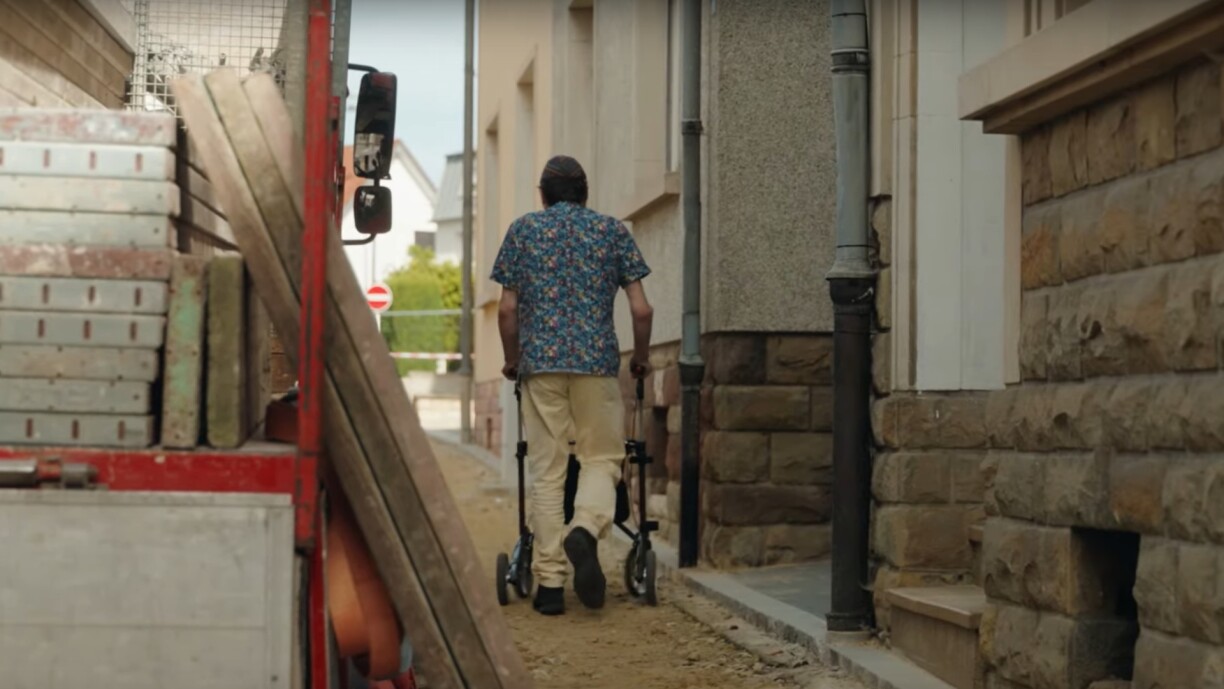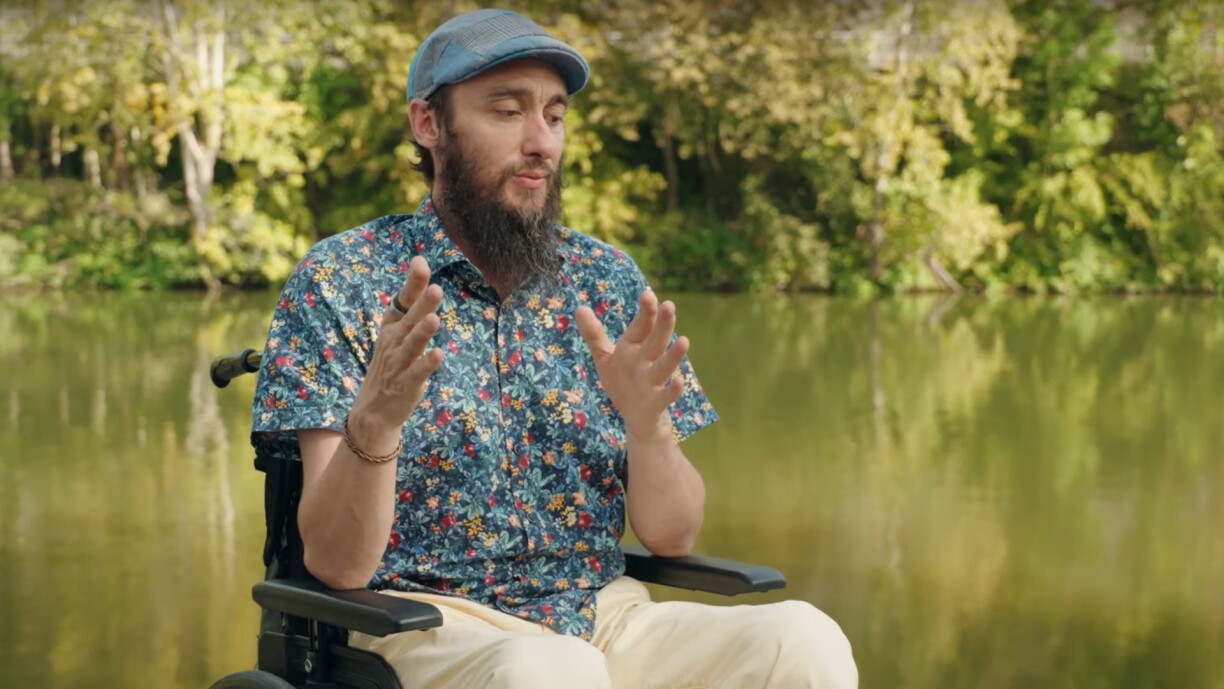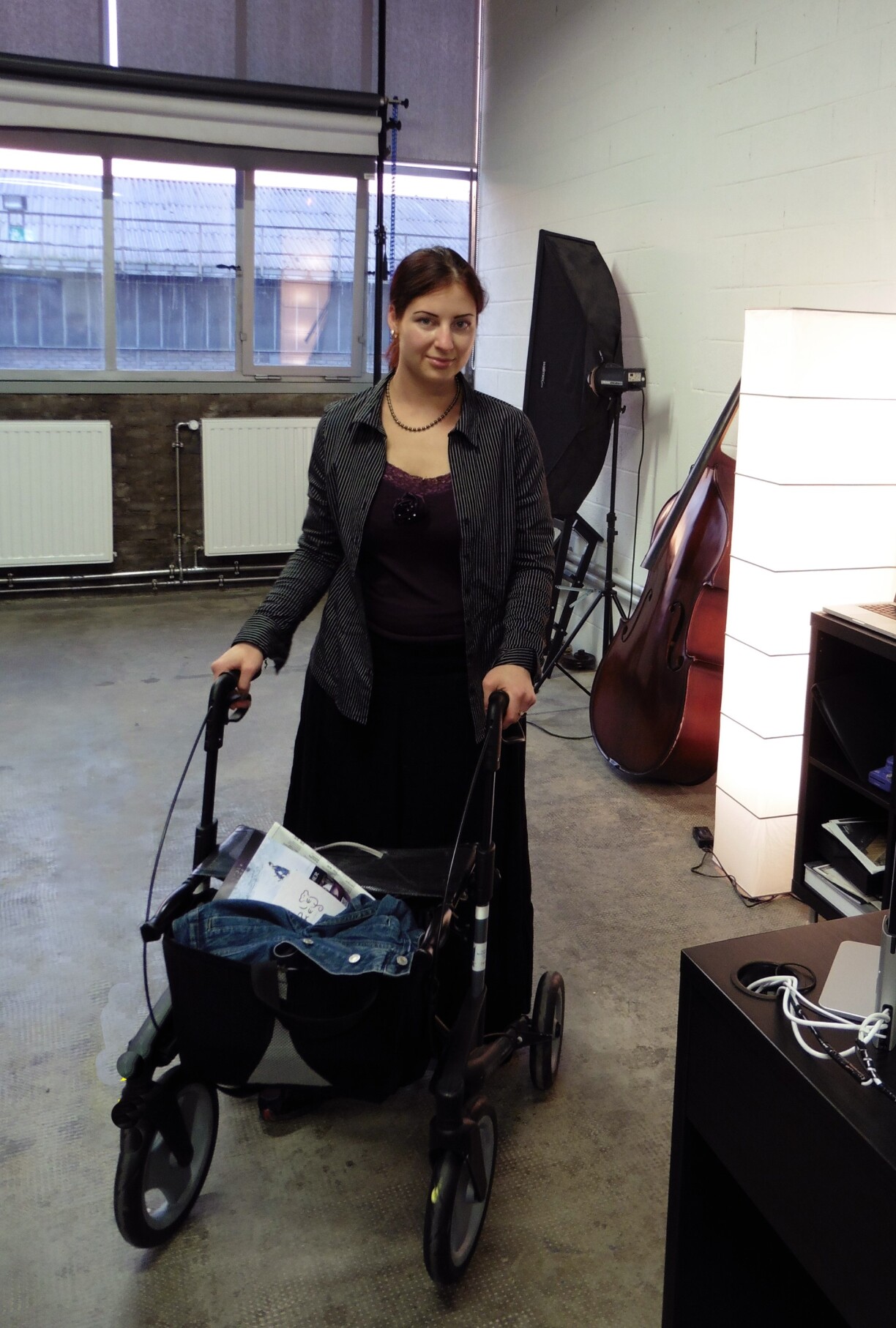
Ben Michaels said he has pleaded with the commune of Mertert to ensure safe and unobstructed access to his home during renovation works on his street and is refusing to pay his local taxes until satisfactory measures are put in place. Mr Michaels describes himself as being “permanently disabled” and must use walking aids and wheelchairs to get around. His condition is called Nail-patella syndrome and causes complexities with mobility.
Taking a stand against what he describes as “a safety hazard”, Mr Michaels is refusing to pay any commune taxes or bills for the period of time he has had unsafe access to and from his home.
He told RTL Today: “Since the end of July 2023 the road in front of my apartment has been under construction with no adaptions put in place that allow me safe and unobstructed access to my front door.”
The Australian native, who has been living in Luxembourg for five years, said he has been left with no other choice and “has no other way to protest” to ensure his voice is heard.
Other than the general annoyance of excessive noise and roadblocks that come with such construction work, Mr Michaels said the lack of street access has had a huge impact on his daily life as well as his wellbeing.
“This entire process causes me significant stress as I have very little energy each day and have to try and keep the bills paid, which is taking a significant toll on me. Every time I leave my house I risk hurting myself which sometimes prevents me from leaving and being able to live my life the way I need to.”
“For many months I have been unable to leave my front door without having a footpath to land on. I just expect there to be certain policies and safety rules that should be adhered to that allow me safe access to my home.”
Mr Michaels said he has pleaded repeated with the commune to do something to improve accessibility for himself and others in a similar situation on his street.
“There are at least two other people on my block with walking aids, a wheelchair and four-wheel walker that have to cross the same street as I do to get to the shops or anywhere and for seven months now it has been unsafe.”
“The situation even caused injury to one of my carers who fell over whilst trying to access my home one day. I am just surprised that something so simple, with simple solutions, has not been taken up to create a safe place for me and others.”
The commune has in recent days told Mr Michaels that it is planning to install temporary ramps on both sides of the pavement until the road surface is laid, but this has not yet happened.
Untold stories of disability
Nadia Kendall, head of (Hidden) Disability Inclusion at “We Belong Europe”, which is a support/action group for disability and inclusion issues, believes that Mr Michael’s story is just one of many untold stories of people with specific needs in Luxembourg.
She said that many disabled individuals are faced with a “disability tax” in this country.
“This refers to the additional emotional and administrative labour they must put in compared to able-bodied people.”
Making direct reference to Mr Michael’s situation she lamented the slow response and absence of concrete action taken to address his concerns.
“This lack of response can be incredibly frustrating and concerning for disabled individuals like Benny. It is crucial that disabled people have the right to have their grievances heard and be included in decision-making processes that affect them.”

“Benny has been denied this right, and we at We Belong Europe will continue to support him in advocating for his needs until action is taken. We also call on all municipalities to make their disability policies readily available in all languages, including English, to ensure that information about disability rights is accessible to all. We feel that the above-mentioned is key to ensuring that disabled individuals can advocate for themselves in situations that require it.”
She added: “It is crucial that we address the accessibility issues faced by disabled individuals. By taking concrete steps to improve accessibility and inclusion, we can create a more equitable society for all.”
Rare disease
Another Luxembourg resident shared her experience with RTL Today of living with reduced mobility in Luxembourg.
Snejana Granatkina, who is an artist based in Remerschen, suffers from a rare disease called LBSL (Leukoencephalopathy with brainstem and spinal cord involvement and lactate elevation), which affects a tiny number of people in the world. Ms Granatkina says she is the only known person in Luxembourg with this genetic, neurological condition.
As a result of the condition, she relies on a walker for short distances and a wheelchair for longer outings.
Ms Granatkina, who also works as an illustrator, graphic designer and filmmaker originally from Uzbekistan, says many towns and villages in Luxembourg are not adapted for people in her predicament.
She believes Luxembourg has a long way to go in terms of improving accessibility for those with reduced mobility, especially with public transport.
“We are all invited to use public transport, but I can tell you because I have done this kind of experiment and I’ve tried to use public transport with my walker. I can assure you this is almost impossible. You must have a person who is able to help you for example to put your walker on the bus and help you climb the stairs.”
Furthermore, those who are in a wheelchair are helpless, she points out when it comes to accessing buses.
“So, I want to say it’s really almost impossible for people with disabilities to use public transport here.”

Extremely complicated
Day-to-day living becomes extremely complicated, she says, as a result of her mobility issues. “Especially when you need to access your place or your house, then it’s a really frustrating situation. And, the problem which I have seen quite often is when there are toilets for people with disabilities behind a very heavy door which must open with the hands, otherwise you can’t access the toilet.
“This all requires force, human force that you need your hands for and on a walker, you are not steady on your feet and you need your hands to keep from falling over. This is very difficult.”
As an artist, she also has some observations: “I would like sometimes to visit galleries but then I see it has a huge number of stairs and no lifts so it’s just impossible for me to enter them.”
“It’s the same situation with older buildings where you have, for example, cafes, restaurants and bars with stairs. And this is not only about people with disabilities. It also concerns other people, for example mothers with young children.”
Ms Granatkina says she relies heavily on the Adapto mobility system, which is an occasional “door-to-door” transport service on request.
“This is a very appreciated service and I’m very grateful that the system exists because otherwise it would be impossible for me.”
Necessary improvements that need to be made for those with mobility issues include more gentle ramps on footpaths, so you are not forced to try and step up on a walker or wheelchair, Ms Granatkina says.
“And in terms of public transport, there are buses with ramps but not enough. There needs to be more buses which have this kind of ramp for accessibility,” she concluded.
RTL Today contacted the Commune of Mertert in relation to Mr Michaels’ complaint but did not receive a response.